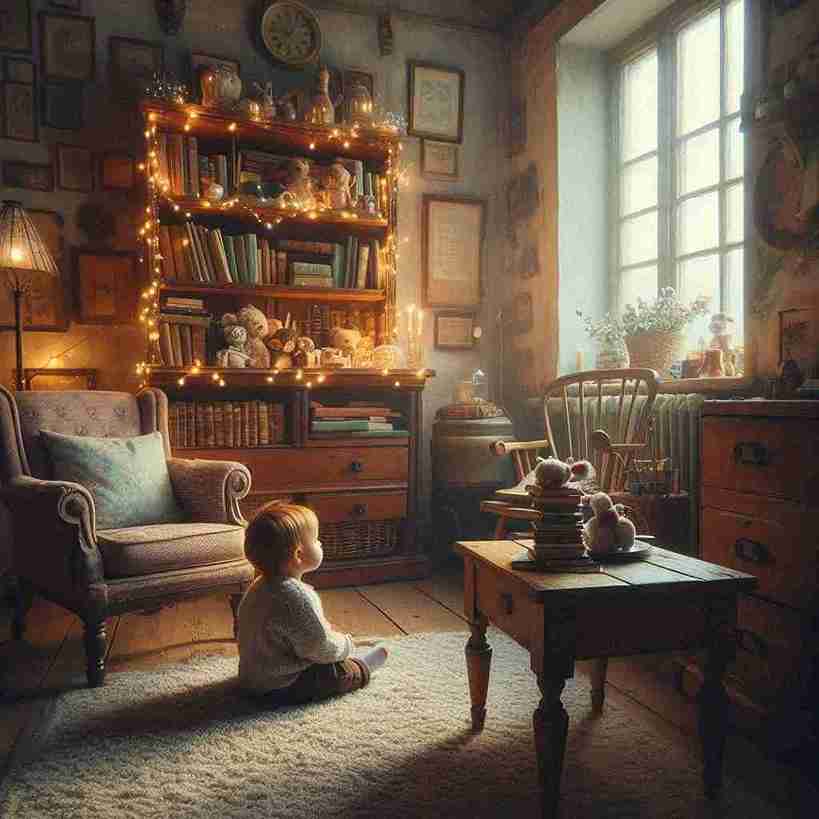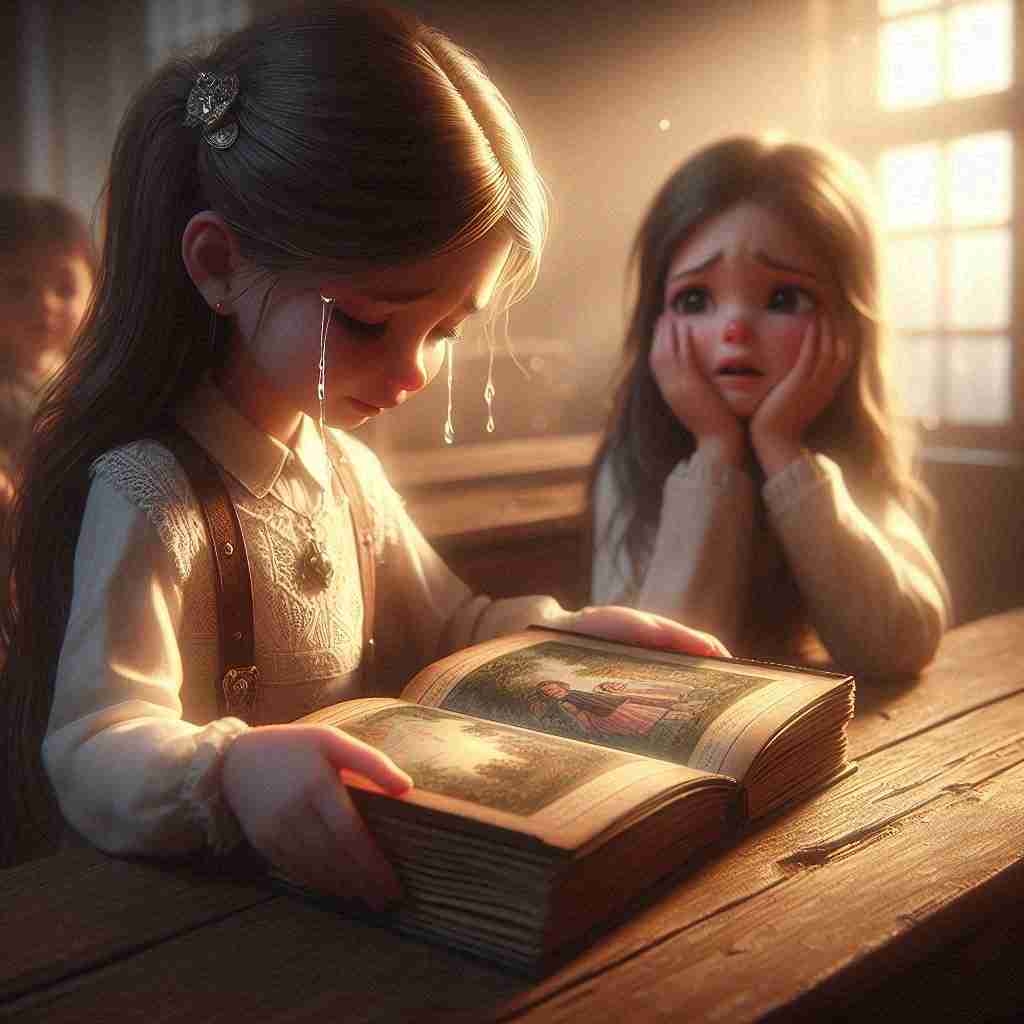When I was eight years old, Christmas meant magic. At school, the hallways buzzed with excitement as December approached. Teachers pinned paper snowflakes to the walls, and every classroom smelled faintly of crayons, glue, and winter jackets recently brought in from the cold. That year, our class announced a Christmas gift exchange, and the room exploded with chatter about what everyone wanted to bring. Kids spoke eagerly about toys, chocolates, glittery hair clips, art sets, and brand-new action figures. Everyone seemed delighted at the idea—everyone except me.

My family didn’t have much then. We lived simply, often stretching every dollar. My parents worked hard, sometimes too hard, trying to give us what they could, even if it wasn’t always enough. So when the teacher explained we needed to bring a wrapped gift worth at least five dollars, my stomach tightened. Five dollars might not have meant much to the other kids, but to us, it meant groceries or bus fare or another week of saving for bills.
I didn’t want to tell anyone the truth. At eight, you don’t want to stand out for the wrong reasons. You want to be part of things. You want to belong. So instead of saying we couldn’t afford it, I went home and searched for something—anything—I could give that might still feel special.

That’s when I found it: one of my dad’s old books, hidden in the back of a shelf. The cover was soft and worn from years of being opened and closed. He used to read it when I was younger, his voice calm and steady as he turned the pages. I didn’t fully understand the story back then, but I remembered how peaceful he looked whenever he read it. To me, it wasn’t just a book. It was a piece of him—a piece of comfort.
With gentle hands, I wrapped it in reused paper we had saved from a birthday months earlier. The edges didn’t line up perfectly, and the tape barely held, but I tied a little string around it to make it look nicer. I stepped back and tried to see it from my classmate’s eyes. I hoped it would feel thoughtful, even if it wasn’t shiny or new.
The next morning, as I placed the gift on the classroom table, I saw the other presents—bright, perfect squares covered in metallic wrapping paper and curling ribbons. Mine looked like it didn’t belong there, like it had wandered in by mistake. But I took a deep breath and reminded myself that I had tried; I had given something meaningful.

When the moment of the exchange arrived, my hands were cold. I was paired with a girl in my class who was always cheerful, always dressed neatly, and always surrounded by friends. When I opened her gift, my breath caught. Inside was the newest Barbie doll of the season—the one everyone wanted. Her dress sparkled beneath the fluorescent lights, and her long blond hair shone as if each strand had been polished. I felt both joy and dread. Joy, because the doll was beautiful. Dread, because I knew my gift could never compare.
Then it was her turn.
She slowly peeled away the reused wrapping paper, revealing the faded cover of my dad’s old book. She stared at it for a long moment. Then her eyes began to fill with tears. Tears that slipped down her cheeks quietly at first, then faster. I froze. My chest tightened. I wanted to disappear under my desk. I thought I had ruined Christmas. I thought I had embarrassed her. I thought I had embarrassed myself.
I didn’t know what to say. My throat felt thick, and my heart thudded loudly in my ears. I wanted to explain, to apologize, to somehow make everything less awkward, but the words wouldn’t come.
The day ended with a strange heaviness that followed me all the way home.

The following morning, when I walked into class, I noticed her mom standing near the doorway. She looked calm, composed, her scarf neatly wrapped around her neck. When she saw me, she gave a gentle smile—one that didn’t feel harsh or disappointed.
“May I speak with you for a moment?” she asked softly.
I nodded, though my hands trembled. We stepped into the hallway, where the sounds of students echoed in the distance. My mind raced with possibilities. Had I upset her daughter? Had I done something wrong? Was she here to return the gift?
Instead, she knelt down so her eyes were level with mine. And then she spoke in a warm, steady voice.

“My daughter wasn’t upset with your gift,” she said. “She cried because she realized how special it was.”
I blinked, confused.
She continued, “She told me that you gave her a book that belonged to someone important to you. That it wasn’t just something from a store—it was something from your home, from your heart.”
A softness washed over me, lifting a weight I had carried since the day before.
“She said it made her think about what giving really means,” her mother added. “About how gifts aren’t supposed to be measured by price, but by meaning.”
Her smile widened just a little. “I wanted you to know that your kindness touched her.”
I didn’t know how to respond. Relief, gratitude, and a little disbelief all blended together inside me. I had expected disappointment. Instead, I found understanding.
A week later, my classmate handed me a small folded note during recess. Inside, written in her careful handwriting, were words I’ve never forgotten:
“Your gift taught me what giving really is. It meant more to me than anything new ever could.”
She wrote that she felt lucky to have received something with a story behind it, something that mattered to someone. She said it made Christmas feel more real.
I kept that note for years—tucked inside a journal, then later in a keepsake box—because it reminded me of a beautiful truth: sometimes the simplest gifts carry the most love. Sometimes the things we give from our hearts become memories that stay with others far longer than anything wrapped with perfect paper.
That Christmas taught me something powerful—something I’ve carried into adulthood:
Generosity isn’t about what we can afford.
It’s about what we’re willing to give of ourselves.
And sometimes, in ways we don’t expect, the gifts we fear aren’t enough become the ones others cherish forever.

0 Comments